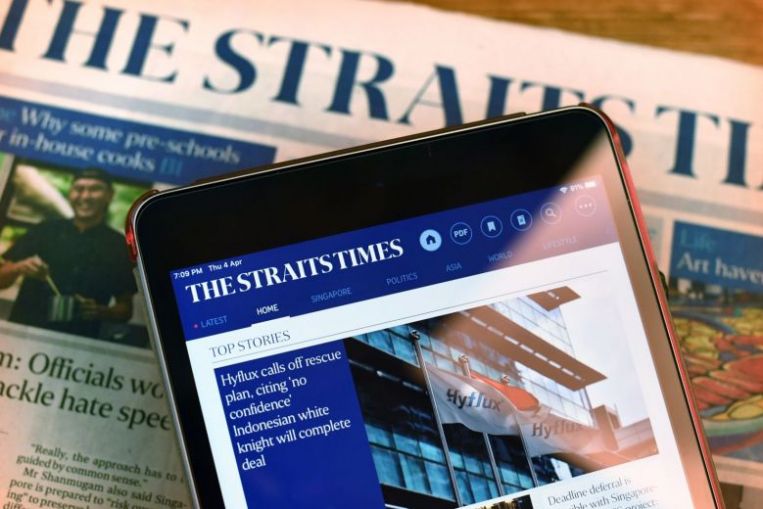SINGAPORE – Unlike humans, artificial intelligence (AI) currently lacks general-purpose common sense.
For example, while an AI “brain” could learn that approaching a tiger in the forest is a bad idea, it might not reach the same conclusion if it encounters the tiger on the street.
This means AI “brains” have to be fed data on every possible scenario in order to be able to respond to every possible scenario.
But getting that data is often time-consuming and expensive, a problem which led fresh graduates Aravind Kandiah, 26, and Charles Wong, 25, to develop a simulation engine called Bifrost.
Bifrost, which is also the name of the start-up the duo founded, creates custom virtual worlds for clients to simulate events that are hard to come by in real life, such as traffic accidents and natural disasters.
Mr Aravind and Mr Wong were crowned the top winners of the new Student Techblazer category in the second annual Singapore Digital Techblazer Awards on Tuesday (Nov 5).
Despite graduating from the Singapore University of Technology and Design only in September, they have already begun working with transport operator SMRT to create realistic simulations to train an AI algorithm that helps with safety checks when trains enter or leave the depot.
“Data is the bottleneck in developing good AI solutions, especially for smaller companies which simply can’t afford the time and money to obtain all the data they need,” said Mr Aravind.
“Our engine creates virtual worlds to simulate things like the near-misses or fatalities on the roads that are really needed for AI but are rare in reality.”
The two other student winners came from the School of Science and Technology, and Anglo-Chinese School (Independent).
The Techblazer Awards recognise Singapore’s best in tech innovation and are jointly organised by the Infocomm Media Development Authority (IMDA) and SGTech.
This year’s awards saw close to 300 applicants and featured 10 winners across three categories, up from eight winners last year. The awards ceremony was held at Suntec.
Local artificial intelligence company BioMind and its medical diagnostic support system was the top winner for the Most Promising Innovation category.
Powered by AI, the system analyses MRI and CT scan images for neurological disorders, such as brain tumours, before coming up with a diagnosis and generating a report for doctors to review in less than a minute.
This is up to 30 times faster than the average time doctors take on their own and helps free them up for more value-added activities, said BioMind chief executive officer Raymond Moh.
“We are really proud to have been crowned the champion. The award helps give additional assurance to all our stakeholders and will also help us attract more talent in AI, of which there is a shortage globally,” added Mr Moh.
The other three winners for Most Promising Innovation were risk management solutions company CashShield, enterprise software solutions company Tookitaki, and fintech solutions company Spark Systems.
Lastly, the Best Adoption category recognised companies and public sector organisations that have adopted tech products or solutions to digitally transform their businesses.
The three winners were the National Parks Board, private healthcare provider Parkway Pantai, and SME York Launch Services, which partnered tech solutions firm Maritime Technologies to digitalise its ferry operations.
Speaking during the gala dinner for the awards, Minister for Communications and Information S. Iswaran commended the tech industry trailblazers who challenge the limits of what is possible through the use of technology.
“What tonight’s winners have in common is their pursuit of solutions and services that benefit society,” he said.
Source: Read Full Article
